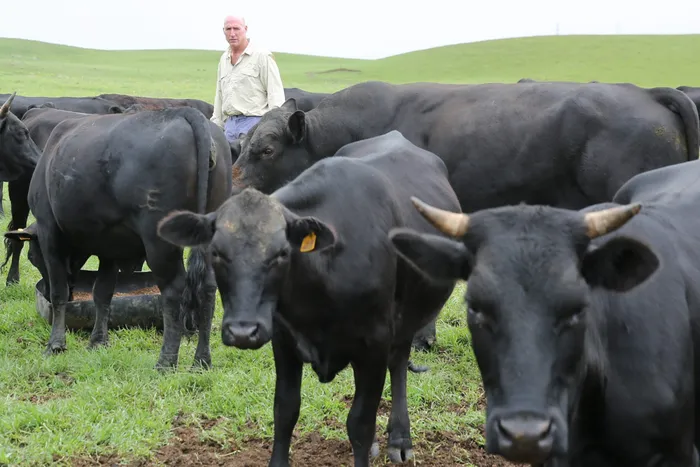
Agricultural associations remain concerned about the possible impact of tariff increases announced by US President Donald Trump, which could possibly reach as high as 30% for South Africa. The Red Meat Industry Services said that the full scope of the tariff increase is unclear.
Image: Motshwari Mofokeng/Independent Newspapers
Agricultural associations have remained concerned about the possible impact of tariff increases announced by US President Donald Trump, which could possibly reach as high as 31% for South Africa.
The Red Meat Industry Services (RMIS) said on Friday that the full scope of the tariff increase was unclear at the moment.
Dewald Olivier, the CEO at RMIS, said that South Africa’s preferential trade access under the African Growth and Opportunity Act (Agoa) was naturally a cause for concern across the agricultural sector, including red meat.
“However, it is important to note that South Africa does not currently export significant volumes of red meat to the United States, due in large part to existing technical trade barriers, including sanitary and phytosanitary (SPS) regulations,” he said.
Olivier added that the greater concern from the RMIS perspective lied in potential market spillover effects.
“Should the US become a less accessible market for other South African agricultural exports such as citrus, nuts, and wine, those industries may increase their focus on alternative markets including key red meat export destinations. This could create additional competition in already price-sensitive regions such as the Middle East, Asia, and Africa.”
Olivier said that the tariff developments undermined trade predictability and confidence, both critical to maintaining long-term planning and investment in export value chains.
“They also highlight the broader need for South Africa to diversify export markets and revisit bilateral trade agreements, including pursuing more stable arrangements with large importers like the US,” Olivier said.
He said that RMIS supported a constructive diplomatic approach, one that recognised the importance of clear, rules-based trade and sought to understand and address the concerns raised by the US administration.
“We also call for strengthened technical capacity within the government to respond to complex trade matters and defend South Africa’s trade position with accurate data. We will continue to monitor the situation closely and engage with relevant role-players in the red meat value chain to prepare for any indirect effects of these new tariffs,” he said.
The Trump tariff announcement has also raised concern from among international agricultural associations.
Matt Simpson, CEO of Brazil Potash, said that Trump imposed 25% tariffs on Canadian potash on March 4, but on March 6, he exempted goods covered under the Canada-United States-Mexico Agreement (CUSMA) and lowered the potash tariff to 10% because of massive pushback by the US farming industry.
“Yesterday, there was concern that the 10% potash tariff would be increased to 25%, but this did not happen,” Simpson said.
“Potash normally sells for $300 (R5 700) per ton to $400 (R7 600) per ton and is currently selling for $358 (R6 800) per ton into the US Midwest; hence, a 10% tariff on Canadian potash would increase the price to $394 (R7 500) per ton, which is still within the typical price range and hence will likely be fully passed on to US farmers and likely consumers at the grocery store.”
Simpson added that the US imports 95% of its potash, which is one of the three main nutrients used to grow food, out of which 85% comes from Canada.
“The only country that could supplement Canada’s ~8.5 million tons per year of potash supplied to the US is Russia (producing ~13 million tons per annum) or Belarus (also producing ~13 million tons per annum), but Belarus is currently sanctioned by the US, so that only leaves Russia, who would need to redivert the vast majority of their production, which is not likely viable.”
BUSINESS REPORT